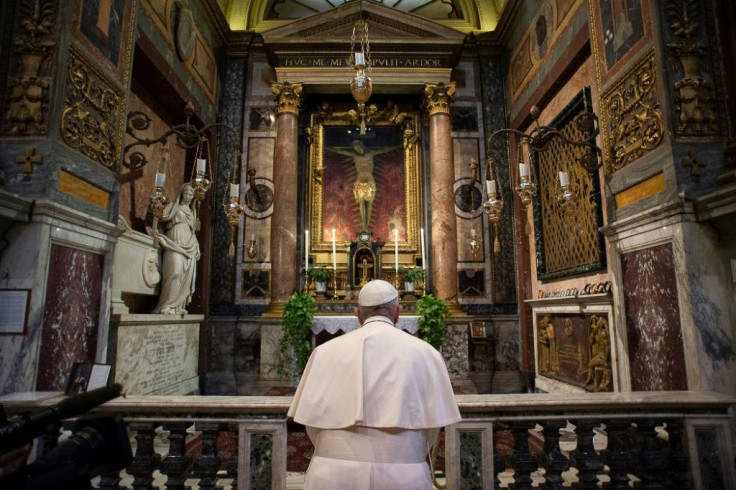European Commission Imposes 30-Day Travel Ban To Fight Coronavirus Spread

The European Commission on Monday ordered a 30-day ban on nonessential travel to the European Union, its latest move to help contain the coronavirus, which has killed more than 6,700 since it first appeared late last year in China.
The most concentrated spread of the virus has moved from China to Europe, where at least 1,809 have died in Italy, 355 in Spain, 127 in France, 35 in the United Kingdom, 24 in Netherlands, 14 each in Germany and Switzerland, six in Sweden, five in Belgium, four in Greece, three each in Austria, Denmark, Norway and Poland, two each in Bulgaria and Ireland, and one each in Albania, Azerbaijan, Luxembourg and Ukraine. Worldwide, nearly 175,000 cases have been confirmed with more than 6,700 deaths.
EC President Ursula von der Leyen announced the decision on Twitter after first informing the Group of Seven nations in a conference call.
“The European Union and other parts of the world are confronted with a public health crisis due to spread of the coronavirus,” she said, adding that health systems are under tremendous pressure and slowing the spread of the virus will be effective only through coordinated action.
“Here in Europe, we are heavily affected by the virus. … The less travel, the more we can contain the virus.”
She said the initial 30-day ban could be extended if the situation warrants. Medical personnel and people transporting goods, especially food and medicines, are exempt.
The @EU_Commission presents guidelines on border measures & proposes:
— Ursula von der Leyen (@vonderleyen) March 16, 2020
1⃣Green lanes/fast lanes giving priority to essential transport to keep the mobility sector going & ensure economic continuity
2⃣Temporary restriction on non-essential travel to the EU (30 days) pic.twitter.com/9bda9MntF0
Italy, hardest his by the coronavirus with nearly 25,000 confirmed cases, more than half in the Lombardy region, was in lockdown Monday.
“We are facing an emergency that has not been since the war,” Prime Minister Giuseppe Conte said, as the country recorded its single highest one-day death toll Sunday at 368. The one-day tally eclipsed China. Italy now accounts for more than a quarter of the worldwide death count.
Italy activated a sweeping $18 billion emergency aid program, providing funds for medical personnel as well as businesses, workers and families.
“Nobody must feel abandoned and this decree proves it," Conte said, adding more actions would be taken Tuesday “to put in place measures for the economic and social fabric severely affected by the [emergency].”
Spain, with more than 9,400 confirmed cases, making it the second-most affected country in Europe, declared a 15-day state of alarm Saturday and ordered people to remain in their homes with few exceptions.
All businesses, except those that provide food and essential items, were shuttered, and all local fiestas and marches were suspended. Churches were allowed to remain open, providing they could keep crowds down and funerals were to be allowed to go ahead. Rail and bus service was cut by half.
In Germany, where nearly 6,700 cases have been confirmed, borders with France, Austria, Luxemburg, Denmark and Switzerland were closed at 8 a.m. Monday. Elsewhere, federal police were instructed to turn away any noncitizens and those without legal residency who do not have a valid reason for travel.
German Economic Minister Peter Altmaier said officials were trying to keep the restrictions “as limited as possible.” Public life across Germany also was restricted with schools and sports suspended, and all bars, clubs, gambling halls, theaters, cinemas and museums in some areas ordered closed. Beginning Tuesday, fitness studios, public swimming pools and saunas were to close.
Officials in France, which has at least 5,400 confirmed cases, warned the situation was deteriorating rapidly.
"The number of cases double every three days," Health Minister Jérôme Salomon said, advising everyone just to “stay at home. It’s as simple as that.”
© Copyright IBTimes 2024. All rights reserved.






















